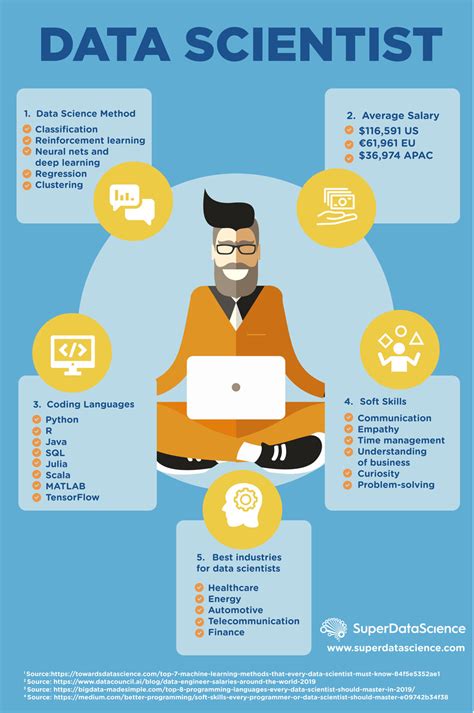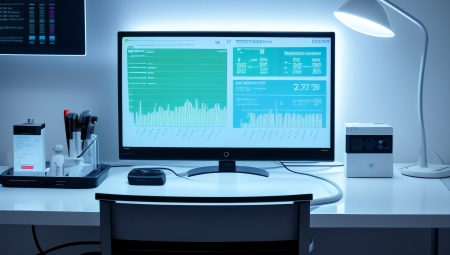In today’s rapidly evolving digital landscape, the role of data science in improving business intelligence has become increasingly invaluable. From understanding the basics of data science to leveraging it for better decision-making, the potential applications of data science in the business world are vast and diverse.
In this blog post, we will explore the various ways in which data science is transforming the way businesses operate. We will delve into how data science can be used to identify market trends, enhance customer segmentation, optimize marketing campaigns, improve operational efficiency, and drive innovation through data-driven insights. Additionally, we will discuss the critical role of data science in leveraging predictive analytics for business forecasting, fraud detection and prevention, and personalizing customer experiences.
By the end of this post, you will have a comprehensive understanding of the significant impact that data science can have on business intelligence and how it can be harnessed to drive growth and success in today’s competitive market.
Table of Contents
Understanding the basics of data science
Data science is a multidisciplinary field that uses scientific methods, algorithms, and systems to extract knowledge and insights from data. It combines various techniques and theories from statistics, mathematics, computer science, and information science to understand and analyze actual phenomena with data. In simpler terms, data science enables organizations to make data-driven decisions by collecting, analyzing, and interpreting large sets of data.
One of the fundamental components of data science is programming. Whether it’s Python, R, or any other programming language, data scientists need to be proficient in coding to manipulate and analyze large datasets. They also use tools like SQL for database management, Jupyter notebooks for data exploration, and various data visualization libraries to present their findings in a visually compelling manner.
Moreover, machine learning is another critical aspect of data science. It involves creating and training algorithms to enable computers to learn from and make predictions or decisions based on data. This can be used for tasks such as customer segmentation, personalized recommendations, or fraud detection. Additionally, data science involves understanding and applying statistical concepts to draw meaningful inferences from data and to validate the accuracy of models and hypotheses.
Understanding the basics of data science is essential for anyone looking to enter the field or for organizations seeking to leverage data for informed decision-making. It’s a dynamic and evolving field that continues to shape numerous industries and drive innovation through data-driven insights.
Leveraging data science for better decision-making
Businesses today are inundated with data from various sources, and making sense of this data can be a daunting task. However, by leveraging data science, organizations can turn this data into valuable insights that can be used to make better decision-making. Data science involves the use of various techniques and algorithms to analyze and interpret complex data sets, and by harnessing the power of data science, businesses can gain a competitive edge in today’s market.
One of the key ways in which data science can help in improving decision-making is through predictive analytics. By analyzing historical data and using advanced statistical models, businesses can forecast future trends and outcomes. This can help in making proactive decisions and anticipating potential market shifts, ultimately leading to more informed and effective decision-making.
Another way in which data science can contribute to better decision-making is by improving operational efficiency. Through data analysis, businesses can identify inefficiencies in their processes, allocate resources more effectively, and streamline operations. This can lead to cost savings and improved productivity, ultimately guiding organizations towards better decision-making.
In addition, leveraging data science can also aid in personalizing customer experiences. By analyzing customer data, businesses can gain insights into customer preferences and behavior, allowing them to tailor their products and services to better meet customer needs. This can result in increased customer satisfaction and loyalty, influencing the strategic decision-making process.
Using data science to identify market trends
Identifying market trends is crucial for businesses to stay competitive and ahead of the curve. With the rapid growth of data in today’s digital age, leveraging data science has become an invaluable tool for companies to gain insights into market trends.
By using advanced statistical analysis and machine learning algorithms, businesses can analyze large volumes of data to identify patterns and trends in consumer behavior, purchasing habits, and market demand.
Through predictive analytics, companies can anticipate future market trends and adjust their strategies accordingly, giving them a competitive edge in the marketplace. This allows businesses to make informed decisions, optimize their product offerings, and target their marketing efforts more effectively.
Overall, leveraging data science to identify market trends empowers companies to make data-driven decisions, adapt to changing market conditions, and ultimately drive business success.
Enhancing customer segmentation with data science
In today’s market, understanding your customers is more important than ever. With the help of data science, businesses can take their customer segmentation to the next level. By analyzing large datasets, businesses can gain valuable insights into customer behavior, preferences, and demographics. This allows businesses to create more targeted marketing campaigns and improve the overall customer experience.
One of the key benefits of using data science for customer segmentation is the ability to create more personalized marketing strategies. By analyzing customer data, businesses can identify specific customer segments and tailor their marketing efforts to better meet the needs and preferences of each segment. This can lead to higher conversion rates and increased customer satisfaction.
Furthermore, the use of data science for customer segmentation can also help businesses identify new market opportunities. By analyzing customer data, businesses can identify emerging trends and preferences, allowing them to capitalize on new market segments and stay ahead of competitors.
Overall, leveraging data science for customer segmentation is essential for any business looking to improve their marketing efforts, enhance customer experiences, and stay competitive in today’s fast-paced market.
Leveraging predictive analytics for business forecasting
Predictive analytics is revolutionizing the way businesses make forecasts and plan for the future. By harnessing the power of data science, organizations can now accurately predict future business trends and make informed decisions. Leveraging predictive analytics for business forecasting allows companies to anticipate market changes, customer preferences, and potential risks, giving them a competitive edge in the industry.
One of the key benefits of using predictive analytics for business forecasting is the ability to identify patterns and trends in historical data. By analyzing past sales figures, consumer behavior, and market trends, businesses can uncover valuable insights that can help them make more accurate predictions about future outcomes. This can be especially useful for industries such as retail, finance, and manufacturing, where demand forecasting can have a significant impact on business success.
Furthermore, predictive analytics can also help businesses optimize their resource allocation and improve operational efficiency. By accurately forecasting demand for products and services, companies can better manage their inventory, production schedules, and staffing levels, ultimately reducing costs and improving overall profitability. This can be particularly beneficial for businesses operating in highly competitive and volatile markets.
In conclusion, leveraging predictive analytics for business forecasting is a game-changer for organizations looking to gain a competitive advantage and drive better decision-making. By harnessing the power of data science and predictive modeling, businesses can unlock valuable insights that can help them anticipate market changes, identify growth opportunities, and mitigate potential risks, ultimately leading to improved business performance and long-term success.
Optimizing marketing campaigns with data science
Marketing campaigns are crucial for the success of any business. In today’s digital age, businesses are constantly looking for ways to maximize the impact of their marketing efforts. This is where data science comes into play. By leveraging data science, businesses can gain valuable insights into customer behavior, preferences, and trends, allowing them to optimize their marketing campaigns for better results.
One of the key ways in which data science can optimize marketing campaigns is through predictive analytics. By analyzing past data and utilizing machine learning algorithms, businesses can predict future customer behavior and preferences. This enables them to tailor their marketing messages and offers to target the right audience at the right time, ultimately leading to higher conversion rates and improved ROI.
Data science also plays a crucial role in customer segmentation. By analyzing customer data, businesses can identify distinct groups of customers with similar characteristics and preferences. This allows them to create targeted marketing campaigns that are personalized to the specific needs and interests of each segment, resulting in higher engagement and response rates.
Furthermore, data science can help businesses in optimizing ad placement and budget allocation. By analyzing the performance of various marketing channels and touchpoints, businesses can determine which channels are most effective in reaching their target audience. This allows them to allocate their marketing budget more efficiently, ensuring that they are getting the most out of their advertising spend.
Improving operational efficiency through data analysis
Operational efficiency is essential for any business looking to maximize productivity and minimize costs. One of the most effective ways to achieve this is through data analysis. By analyzing operational data, businesses can identify areas of improvement, streamline processes, and optimize resource allocation.
Data analysis allows businesses to pinpoint inefficiencies and bottlenecks in their operations, enabling them to make targeted changes that will have a significant impact on their overall efficiency. Whether it’s optimizing supply chain management, improving inventory management, or enhancing production processes, data analysis provides the insight needed to drive meaningful improvements.
Furthermore, data analysis can also help businesses identify opportunities for automation, reducing the need for manual intervention and freeing up resources to focus on more value-added tasks. By leveraging data analysis tools and techniques, businesses can create automated workflows that not only improve efficiency but also reduce the risk of human error.
Ultimately, the key to improving operational efficiency through data analysis lies in the ability to derive actionable insights from the data. By investing in the right data analysis tools and technologies, businesses can unlock the full potential of their operational data and drive continuous improvement across their operations.
Leveraging data science for fraud detection and prevention
Fraud detection and prevention have become critical components of business operations, especially with the increasing reliance on digital transactions and online interactions. Leveraging data science techniques and predictive analytics can significantly enhance a company’s ability to identify and thwart fraudulent activities.
By analyzing large volumes of data, data scientists can develop models that can detect unusual patterns or anomalies that may indicate potential fraudulent behavior. These models can be trained to recognize various types of fraud, from financial fraud to identity theft, and can then be used to continuously monitor transactions and activities in real-time.
Moreover, data science can also be used to identify new trends and methods used by fraudsters, allowing companies to stay ahead of evolving threats. Through the use of advanced algorithms and machine learning, businesses can adapt their fraud prevention strategies to address emerging risks and vulnerabilities.
Ultimately, leveraging data science for fraud detection and prevention not only protects a company’s assets and reputation but also fosters trust and confidence among customers and stakeholders.
Using data science to personalize customer experiences
Personalized customer experiences have become essential for businesses looking to gain a competitive edge in today’s market. By leveraging data science techniques, businesses can now gain valuable insights into their customers’ preferences, behaviors, and needs, allowing them to create tailored experiences that resonate with individual customers. This not only leads to higher customer satisfaction but also increased loyalty and retention.
One way in which businesses can use data science to personalize customer experiences is through predictive analytics. By analyzing historical customer data, businesses can forecast future behaviors and preferences, allowing them to anticipate their customers’ needs and personalize their interactions in real-time. This can range from customized product recommendations to personalized marketing messages, ultimately leading to a more engaging and relevant customer experience.
Furthermore, businesses can enhance customer segmentation with data science, allowing them to group customers based on specific attributes and behaviors. By understanding these segments more deeply through data analysis, businesses can create targeted and personalized experiences for each group, improving overall customer satisfaction and loyalty. This not only strengthens the relationship between the business and its customers but also drives increased revenue through more effective marketing and sales strategies.
In today’s digital age, customers expect personalized experiences from the businesses they interact with. By utilizing data science to gain valuable customer insights and create personalized experiences, businesses can not only meet but exceed customer expectations, driving long-term success and growth.
Driving innovation through data-driven insights
One of the most significant aspects of modern business is the ability to drive innovation through the use of data-driven insights. By leveraging the power of data science, companies are able to gain a deeper understanding of their operations, customer behaviors, and market trends.
With the help of data analysis and predictive analytics, businesses can identify new opportunities for growth and development. This not only allows for the creation of breakthrough products and services but also enables companies to stay ahead of the competition.
Furthermore, data-driven insights provide vital information for strategic decision-making, allowing businesses to make informed choices based on concrete evidence rather than guesswork. This not only minimizes the risk of failure but also maximizes the potential for success.
In conclusion, driving innovation through data-driven insights is an essential strategy for businesses looking to thrive in today’s fast-paced and data-centric environment. By harnessing the power of data science, companies can achieve unprecedented levels of success and continue to push the boundaries of what is possible in their respective industries.





